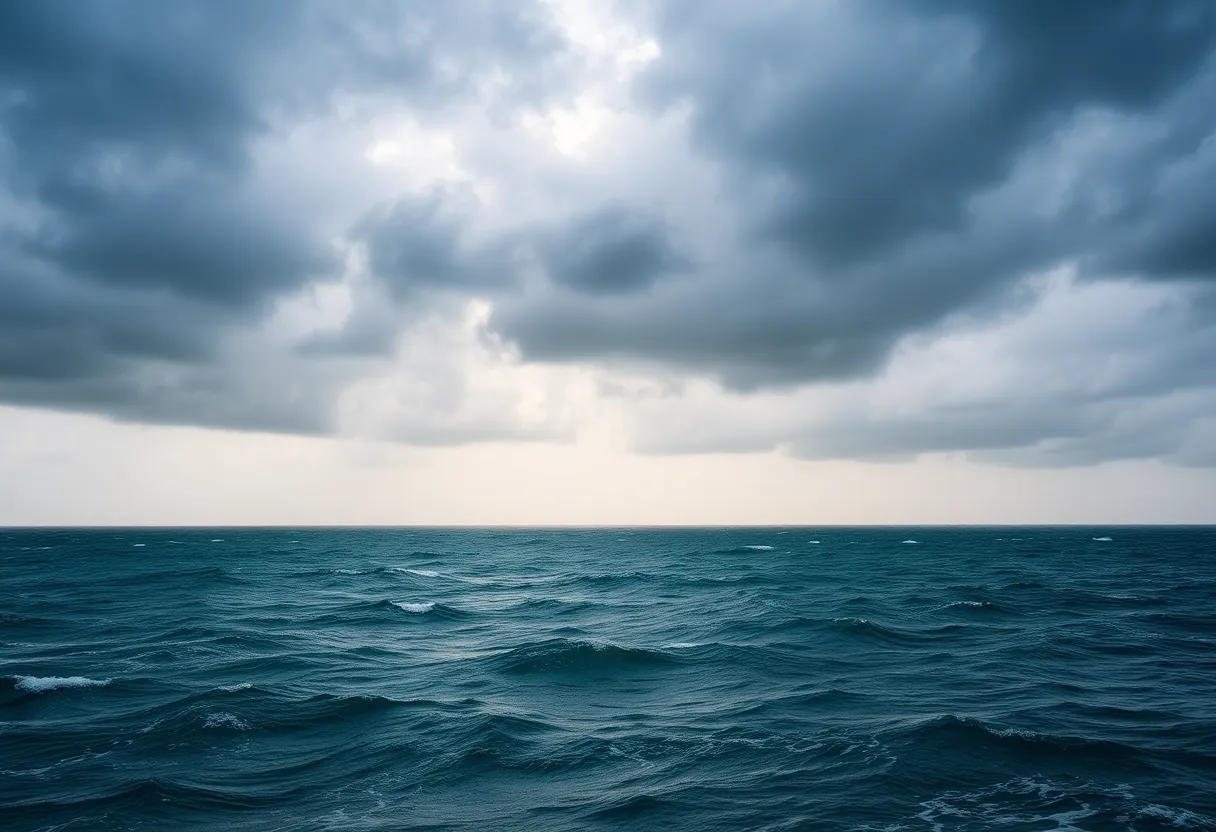News Summary
Economist Ray Dalio raises concerns about the potential for a recession due to President Trump’s tariff policies. He warns of the implications for businesses and consumers as the U.S. economy shows signs of instability. With a selloff in the stock market and heightened anxiety among leaders, Dalio highlights the urgent need for a ‘win-win’ trade agreement with China to stabilize the economic landscape. This is a critical time for understanding the risks associated with tariffs and preparing for possible challenges ahead.
The Economic Storm on the Horizon: Experts Weigh In
As the financial world navigates through tumultuous waters, notable economist Ray Dalio is raising alarms over the unsettling impact of President Donald Trump’s tariff policies. With the U.S. economy currently teetering on the edge, Dalio expresses that we might be “very close to a recession.” But what does that really mean for everyday folks?
Understanding Recession: What’s on the Line?
Typically, a recession is defined as witnessing two straight quarters of falling gross domestic product (GDP). It’s a technical term that translates to a time when businesses are struggling, jobs may be lost, and paychecks begin to tighten. Recent events have prompted heightened anxiety among business leaders and analysts, especially after a significant stock market selloff on April 2 sent ripples of concern through the economy.
The Impact of Tariff Policies
Dalio points out that the inconsistencies and delays in tariff implementations are having a paralyzing effect on businesses. When tariffs are introduced, they hit the wallet of both companies and consumers, ultimately affecting everything from prices at the grocery store to the stock market’s vibrancy. Tariffs can be described as a punch to the gut of the production chain, with Dalio metaphorically indicating that it’s akin to throwing rocks into the production system.
Investors have reason to be on edge; these tariffs can lead to increased costs for imported goods, and businesses start to panic when they can’t predict expenses or sales. This uncertainty can erode confidence, leading to reduced spending and investment, further aggravating the economic situation.
Historical Echoes of Economic Turmoil
Dalio’s reflections are not mere opinions but grounded in a historical context that many can find alarming. He suggests that the current economic landscape bears a striking resemblance to the turbulence of the 1930s. The ongoing trade disruptions and climbing U.S. debt create an environment ripe for instability. Moreover, he highlights that the rise of emerging global powers further complicates an already precarious economic order originally established post-World War II.
Different Perspectives on the Recession Risk
Dalio isn’t standing alone in his assessment. A chorus of voices from the financial elite, including JPMorgan’s CEO and the leader of BlackRock, have acknowledged that we might already be on the brink of a recession. Such consensus suggests there’s weight behind these concerns. It’s like a group of sailors collectively noting the storm clouds gathering at sea; it’s best to prepare rather than wait for the tempest to hit.
Charting a Path Forward
So, what can be done? Dalio advocates for a “win-win” trade agreement with China, envisioning a resolution that benefits both nations rather than stoking tensions. Additionally, he urges Congress to take action in lowering the federal deficit—specifically suggesting it should align with 3% of GDP. The longer these pressing issues are left unaddressed, the greater the risk of realizing a deep supply-demand crisis with debt that could surpass typical recession outcomes.
As the financial community accurately assesses these risks, Dalio reminds us that the key lies in how we manage these challenges. Are we steering our ship through these choppy waters wisely? The difference might just be in whether history repeats itself in a catastrophic or manageable fashion.
Staying Informed and Prepared
The world of economics swings with momentum that impacts everyday lives, jobs, and consumer choices. While it’s easy to get lost in the jargon and statistics, understanding the potential repercussions of these tariff policies and the looming threat of recession is crucial. Staying informed and prepared is the best defense against the uncertain tides ahead.
Deeper Dive: News & Info About This Topic
- CNBC: Ray Dalio on Economic Concerns
- The Guardian: Ray Dalio Discusses Tariffs and Recession
- Business Insider: The Impact of Trump’s Tariffs
- Wikipedia: Recession
- Reuters: Dalio Warns of Economic Downturn







